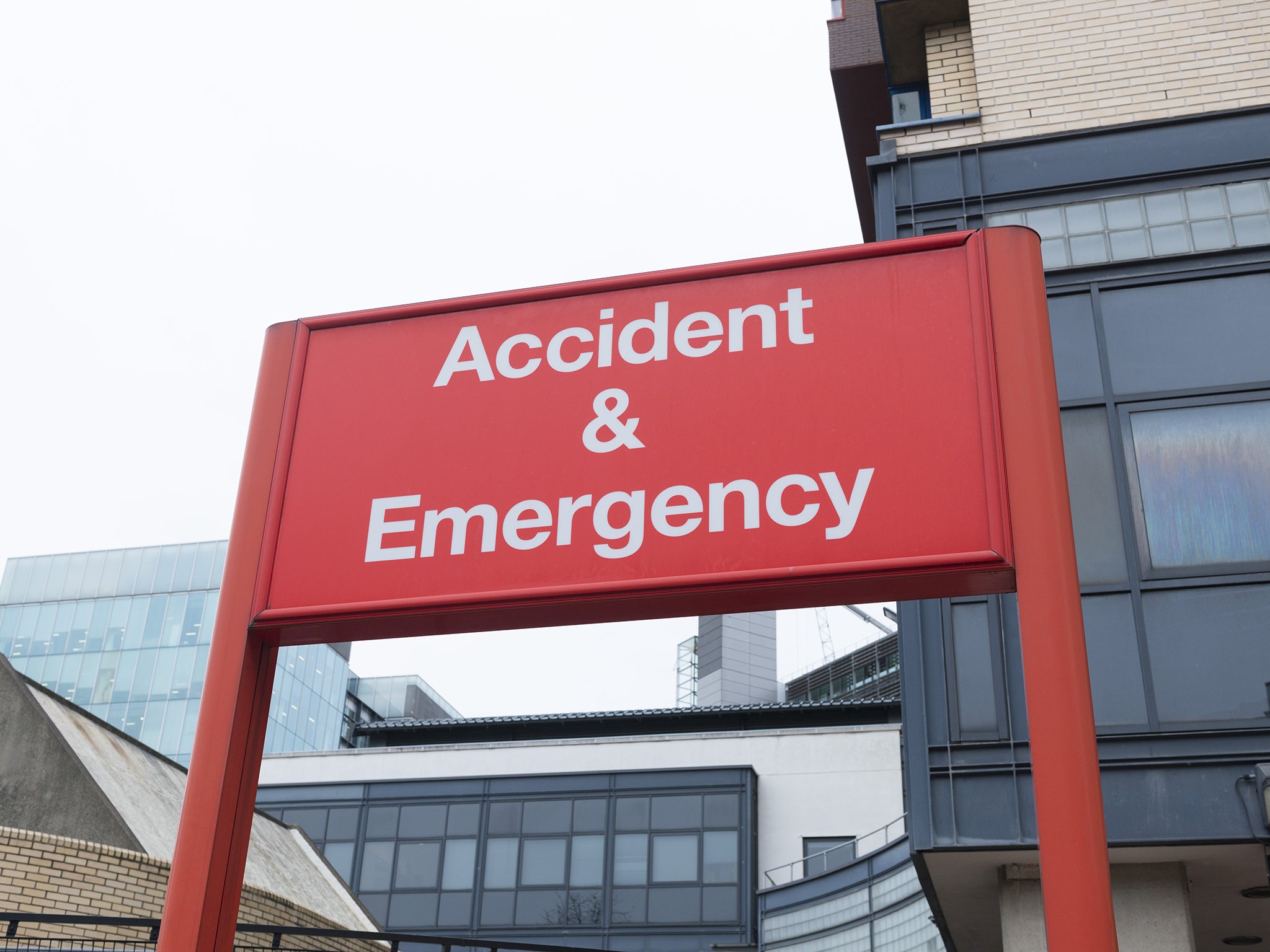Charities offer to help out in A&E to relieve pressure on staff
Charities including the Red Cross, Age UK and the Royal Voluntary Service want to see volunteers and staff stationed in hospitals to help to feed and hydrate vulnerable patients

Your support helps us to tell the story
From reproductive rights to climate change to Big Tech, The Independent is on the ground when the story is developing. Whether it's investigating the financials of Elon Musk's pro-Trump PAC or producing our latest documentary, 'The A Word', which shines a light on the American women fighting for reproductive rights, we know how important it is to parse out the facts from the messaging.
At such a critical moment in US history, we need reporters on the ground. Your donation allows us to keep sending journalists to speak to both sides of the story.
The Independent is trusted by Americans across the entire political spectrum. And unlike many other quality news outlets, we choose not to lock Americans out of our reporting and analysis with paywalls. We believe quality journalism should be available to everyone, paid for by those who can afford it.
Your support makes all the difference.Some of Britain’s leading charities will urge the Government to let them make a “radical intervention” at accident and emergency (A&E) departments in a bid to relieve crippling pressure on medical staff.
Charities including the Red Cross, Age UK and the Royal Voluntary Service want to see volunteers and staff stationed in hospitals to help to feed and hydrate vulnerable patients, prevent unnecessary hospital admissions of frail, elderly people, and help to arrange follow-up care.
The Cabinet Secretary and head of the Civil Service, Sir Jeremy Heywood, will meet chief executives of the charities today to hear how their “vital, strategic” services are being wasted at a time when the NHS is overwhelmed by unprecedented hospital admissions.
While trained volunteers already help out at some hospitals, the Association of Chief Executives of Voluntary Organisations (Acevo), which is leading the proposal, will urge the Government to commission a major national expansion of the services.
Some of the services trained staff could provide include making transport arrangements for elderly people leaving hospital, making visits to their home to prevent readmissions, providing company for vulnerable patients to aid their recovery, and pointing patients to more suitable services.
Sir Stephen Bubb, the chief executive of Acevo, said: “The NHS needs an innovative and radical intervention – otherwise this situation is going to carry on. We’ve known for a long time that frail, elderly patients are being kept in hospital for a long time despite not having medical conditions.
“This isn’t about bailing out the NHS or the NHS not coping, but an effective way of letting us do the job we can do in social care and freeing up medical staff so they can do their job.”
A&E units had one of their busiest weeks on record in the week ending 4 January, when they failed to meet their target of seeing 95 per cent of patients within a four-hour period, instead managing to do so with 86.7 per cent of the 407,239 patients who attended. Dr Sarah Pinto-Duschinsky, the director of operations and delivery for NHS England, said the health service continues to face “unprecedented pressures on its frontline services” which will continue for the next few weeks.
Join our commenting forum
Join thought-provoking conversations, follow other Independent readers and see their replies
Comments